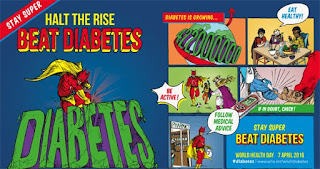If you have an elderly father, mother, grandfather, grandmother or aunt, you will have come across them losing balance and falling.
For people who are above age of 65, falls are a common problem which can lead to loss of independence and can also be fatal enough to cause death.
There are many reasons for falls in the elderly.
1. Long standing diabetes. This causes peripheral neuropathy and loss of sensation in legs.
2. Parkinson's disease- in this disease the muscles and nerves are less active leading to loss of balance, tremors and falls.
3. Postural hypotension, that is, the blood pressure falls when a person stand leading to lack of blood supply to the brain when a person gets up suddenly from bed or chair.
4. Poor eyesight or improper glasses.
5. Poor lighting in the house.
6. Slippery floors.
7. Few medications can make them dizzy.
There are many ways to prevent falls. Some of them are self explanatory in the reasons given above.
Also having a caregiver who is there to support the elderly can reduce the incidence of falls by 98%.
Get in touch with us to know how you can better take care of an elderly loved one.
Image Credit: maxpixel.freegreatpicture.com
For people who are above age of 65, falls are a common problem which can lead to loss of independence and can also be fatal enough to cause death.
There are many reasons for falls in the elderly.
1. Long standing diabetes. This causes peripheral neuropathy and loss of sensation in legs.
2. Parkinson's disease- in this disease the muscles and nerves are less active leading to loss of balance, tremors and falls.
3. Postural hypotension, that is, the blood pressure falls when a person stand leading to lack of blood supply to the brain when a person gets up suddenly from bed or chair.
4. Poor eyesight or improper glasses.
5. Poor lighting in the house.
6. Slippery floors.
7. Few medications can make them dizzy.
There are many ways to prevent falls. Some of them are self explanatory in the reasons given above.
Also having a caregiver who is there to support the elderly can reduce the incidence of falls by 98%.
Get in touch with us to know how you can better take care of an elderly loved one.
